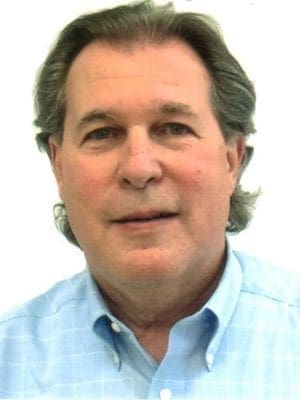Nearly a century ago, Robert Frost penned the well-loved poem “The Road Not Taken.”
Some would suggest that life is marked and measured almost entirely by the decisions we make. Every day offers countless decisions that must be made, and even the most insignificant decisions go into the mix in forming the stuff of the larger ones.
Conversely, the larger decisions then define what options exist to make up the smaller ones, and so on and so on in a never-ending cycle.
Søren Kierkegaard once observed, “Life can only be understood backwards, but it must be lived forwards.” So, we go through life making our decisions and making what peace we can with the results.
My wise old professor would often say in class, “You pays your money, and you takes your choice,” affirming that our willingness to make our own decisions and to live with the results was a defining characteristic of maturity and personal growth.
So, with profound apologies to Descartes, I say, “I make decisions, therefore I am.” But what of all those options we didn’t choose? What about the paths not taken?
As a college student, I worked one summer for the M.E. Moses Co. – an old-time five-and-dime store chain in Texas. What would my life have been like had I decided to ditch college and become a dime store manager for this company?
Looking back, that would have been a short-lived career, as dime stores have virtually disappeared.
Instead, I made a decision to continue with college and on that path I worked at a variety of part-time jobs – none of which were career moves, but merely jobs that helped me earn expense money.
These were pragmatic decisions about work that allowed me to make other foundational decisions that went into pushing me in a specific direction in life. All of those piddly jobs gave me important life experiences that contributed to my knowledge of a wider world.
Some seemingly insignificant decisions fly under the radar of significance and we don’t see them shaping and forming the future. These are those events that psychologist Robert Johnson calls “the slender threads” that make up some of our most significant life-altering moments.
As a student, I decided to ask a girl out after she flirted with me by tickling me with her sock feet. When she did this, I happened to be on a date with one of her girlfriends while we watched a movie as a group.
There was not a second date with her friend. Instead, I called this sock-footed girl the next week and we had our first date. The slender threads of insignificance altered both our lives beyond words.
“The roads not taken” can be a way to view the alternative life we did not choose to live. Some psychologists have focused attention on this reflection as a rich way of thinking about the life we did live by examining “the unlived life.”
One can be consumed with thoughts of “what if” that eventually take the form of regret. For some, those reflections about the life not lived can be experienced in the form of a grief over a life that could have been lived but was not.
One truth we share as people of faith is the belief that we have a traveler with us, who both cares about our choices and is with us to help make those decisions when they are made.
Our fellow traveler is with us when those choices don’t deliver us where we want to go.
Our fellow traveler is with us as we accept the contract of life that bids us to live fully along the arc of our lives, making our decisions and living in partnership with us.
Keith Herron is pastor of Holmeswood Baptist Church in Kansas City, Mo., and a member of the board of directors for the Baptist Center for Ethics. His sermons appear on EthicsDaily.com.

